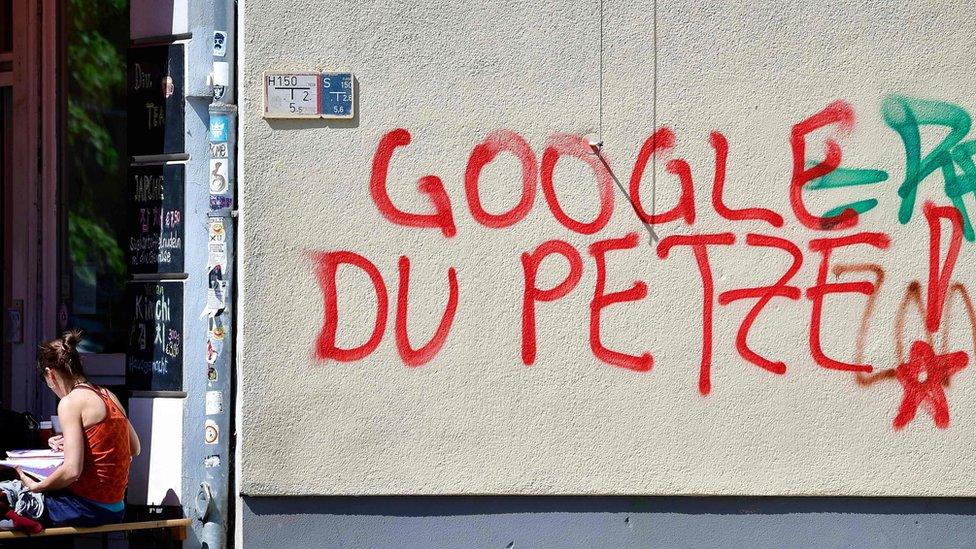Google drops plans for Berlin campus after protests
- Published

"Google you informer!" reads graffiti in Kreuzberg
Google has dropped plans to open a large campus in a trendy district of Berlin that were strongly opposed by local campaigners.
The US tech giant planned to set up an incubator for start-ups in Kreuzberg, but on Wednesday said the site would go to two local charities.
A spokesman did not say if local opposition had played a role in the decision.
Anti-gentrification activists said the move showed that "protest works".
The Berlin campus would have been the firm's seventh after London, Tel Aviv, Seoul, Madrid, São Paulo and Warsaw.
In September activists occupied the building it was to be located in for several hours.
They also put up stickers in the area with slogans such as "Goodbye Google" and "Google is not a good neighbour".
Allow X content?
This article contains content provided by X. We ask for your permission before anything is loaded, as they may be using cookies and other technologies. You may want to read X’s cookie policy, external and privacy policy, external before accepting. To view this content choose ‘accept and continue’.

Some were against what they said were Google's "evil" practices, such as tax evasion and the unethical use of personal data.
Others were fighting gentrification in the area, which they say is pricing local people out. The Knight Fox property consultancy said home prices in Berlin rose 20% between 2016 and 2017. In Kreuzberg prices rose 71% in the same period.
The district has long been known for radical and underground culture.
Google spokesman Ralf Bremer told the Berliner Zeitung newspaper that the company "does not allow protests to dictate our actions", external.
He said discussions with local humanitarian groups had instead led the firm to conclude that giving them the space would be the best solution for the area.
Rowan Bennett, who works with start-ups for Google, said the firm was pleased that the site would become a "house for social engagement".
Allow X content?
This article contains content provided by X. We ask for your permission before anything is loaded, as they may be using cookies and other technologies. You may want to read X’s cookie policy, external and privacy policy, external before accepting. To view this content choose ‘accept and continue’.

The groups benefiting from the decision are Betterplace, an online donation platform, and Karuna, which supports children in need.